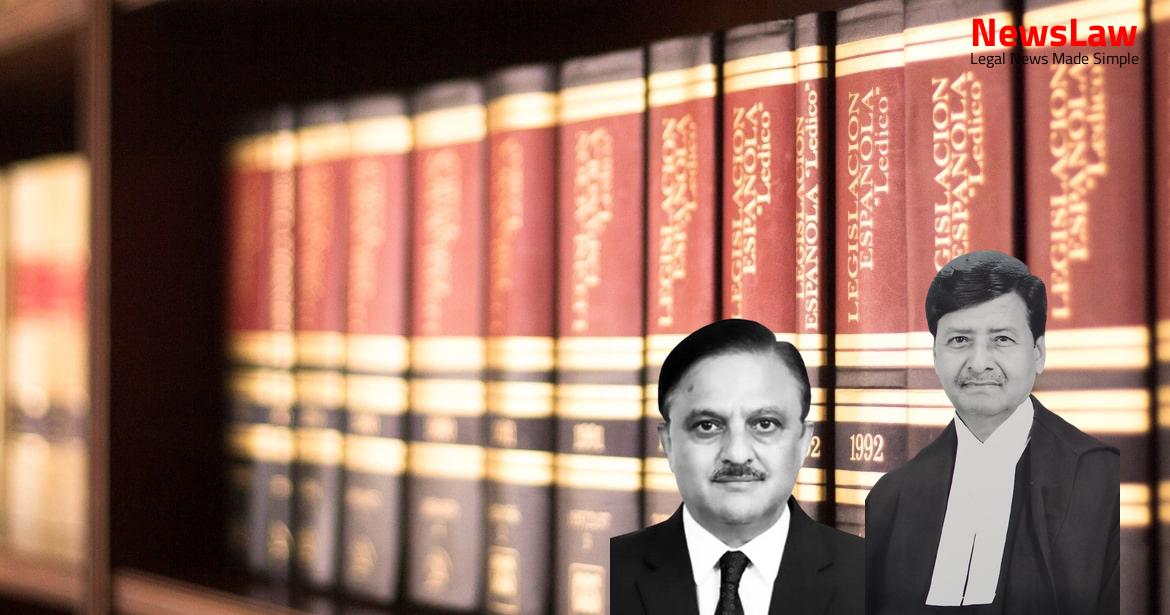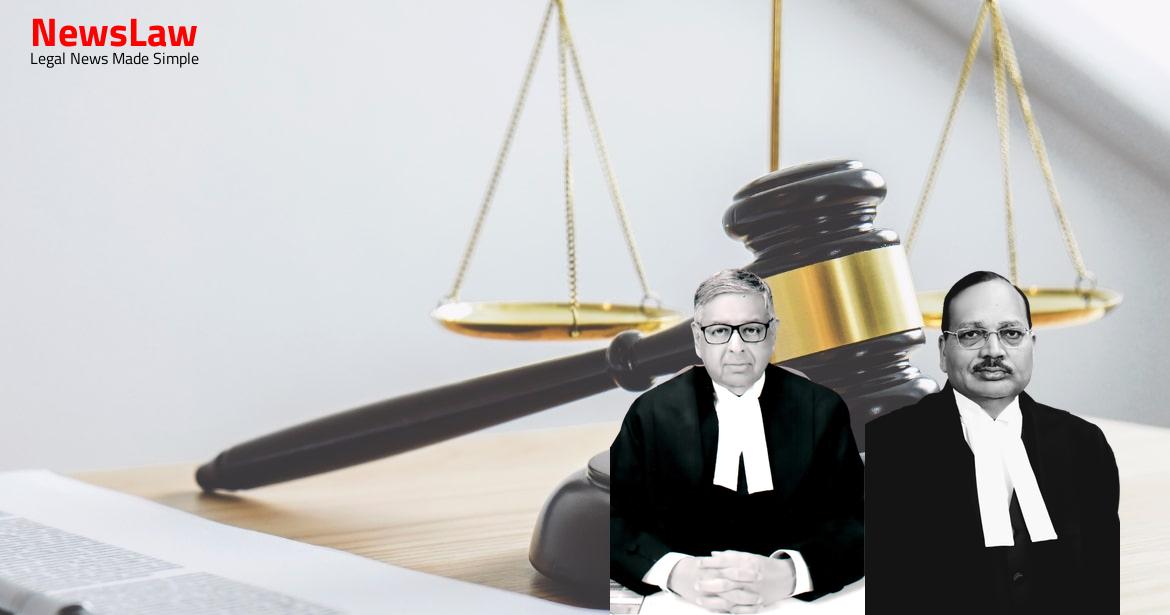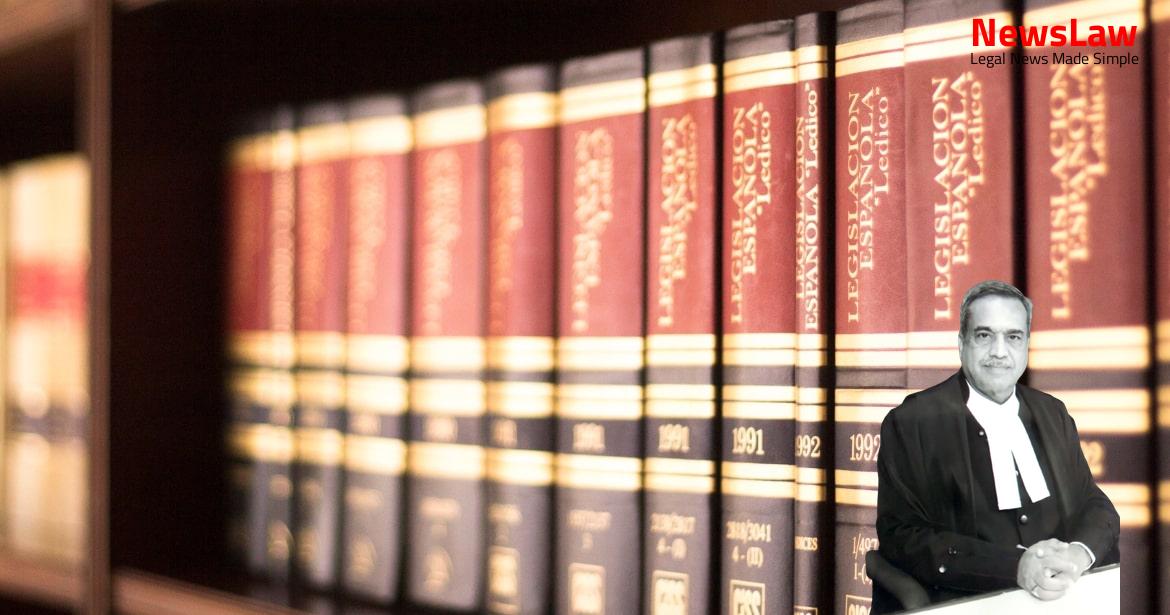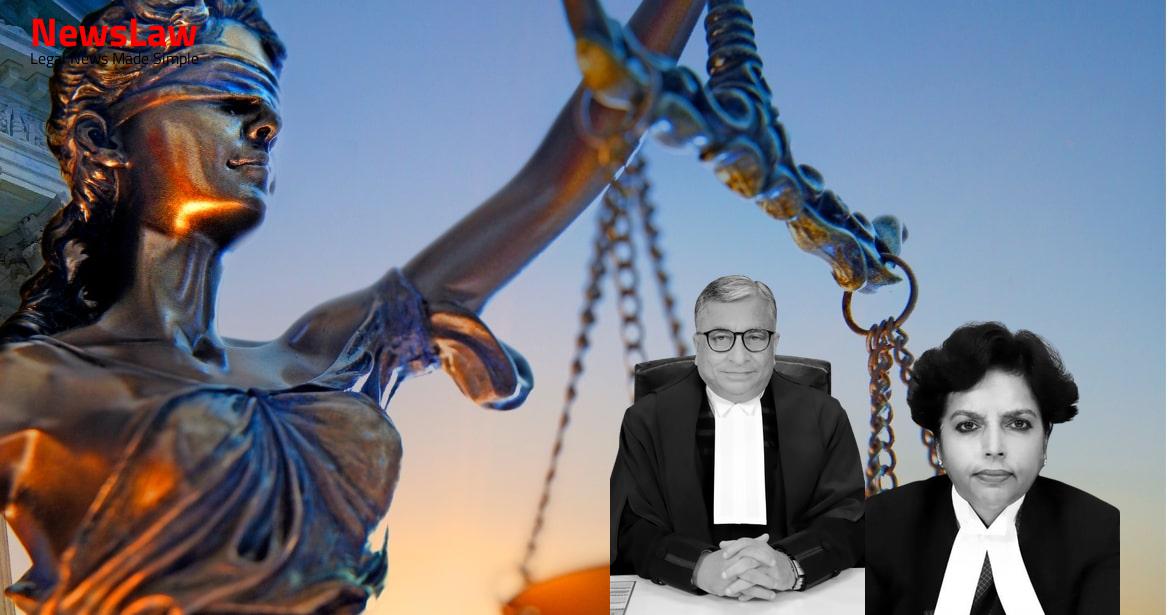Explore the critical examination of an externment order’s validity through a lens of fundamental rights and legal analysis. The court’s in-depth scrutiny of the order provides insights into the parameters required for passing such restrictive measures within the framework of the law.
Facts
- The respondent No.2 relied on 5 offences registered against the appellant for the externment order.
- The offences include sections such as 452, 324, 504, and 34 of IPC, 354, 354(a), 323, 504, 506, 509, 34 of IPC, 307, 325, 323, 341, 201, 120(8), 405, 506, 507, 37 of IPC, 509, 501, 506 with 67, 67(a) of IT Act, and 354, 354(a), 354(d), 509, 506 of IPC.
- Witnesses ‘A’ and ‘B’ provided confidential in-camera statements regarding the appellant’s illegal activities causing harm to the public.
- The appellant filed a writ petition under Article 226 of the Constitution of India challenging the externment order.
- The appellant was externed from District Jalna for two years upon removal from the district.
- The appellant’s appeal against the externment order was dismissed by the Appellate Authority citing the dangerous nature of his activities and the unwillingness of witnesses to give evidence.
- The proposal to detain the appellant under Section 151 of Cr.PC for 15 days was rejected by the Judicial Magistrate
- The appellant was ordered to be released following the rejection of the proposal
- A writ petition was dismissed by the Bombay High Court’s Division Bench on August 20, 2021
Also Read: Admission Deadline Adherence in Medical Courses
Arguments
- Appellant’s counsel pointed out lack of reasons for externing the appellant for a maximum of two years in the impugned order.
- Mentioned attempt by MLA to falsely implicate the appellant in a case filed by Varsha Bankar.
- Counsel highlighted that the offences mentioned span from 2013 to 2020, with some being stale.
- Noted that Varsha Bankar admitted to being advised by MLA’s brother in making calls and sending messages to the appellant.
- Argued that there is no live link between earlier offences and the justification for externment, suggesting potential malice.
- Mentioned the arrest of the appellant under Cr.PC Section 151 based on the same offences.
- Cited issuance of a show-cause notice to the appellant after filing a complaint against MLA, his brother, and Varsha Bankar.
- Pointed out that witness statements ‘A’ and ‘B’ lacked specific allegations against the appellant.
- Highlighted that externment was based on the same set of allegations as the arrest.
- Suggested that the externment order may have been influenced by the MLA to settle family disputes.
- Scope of powers under sub-section (3) of Section 151 of Cr.PC differs from scope of powers under Section 56 of the 1951 Act.
- Competent authority recorded subjective satisfaction of grounds in Section 56(1)(a) and (b) of the 1951 Act.
- High Court examined and rejected grounds challenging the externment order.
- According to Shri Sachin Patil, the competent authority is not required to pass a reasoned order when issuing an externment.
Also Read: From Nominee to Disqualified: Supreme Court Scrutinizes Age Evidence, Declares Election Invalid
Analysis
- The order of externment must pass the test of reasonableness under Article 19(1)(d) of the Constitution of India.
- The order shows non-application of mind and arbitrariness, rendering it unsustainable in law.
- An order of externment should not prevent a person from staying in their own house with family during its validity.
- Distinct grounds specified in Section 56 must be satisfied prior to passing an order of externment.
- The competent authority must form its opinion based on material on record, and must record subjective satisfaction for invoking specific clauses of sub-section (1) of Section 56.
- External factors such as witness safety must be considered when passing an order under clause (b) of Section 56.
- Judicial review can be based on grounds of mala fide, unreasonableness, or arbitrariness in the externment order.
- The order should mention specific areas for which it is enforced, and must be passed sparingly as an extraordinary measure.
- Objective material and subjective satisfaction are prerequisites for invoking clauses (a) and (b) of Section 56 respectively.
- The order appears to have been passed casually and lacks specificity in linking the offences to the necessity of externment.
- Orders of externment must be reasonable and not infringe the fundamental rights guaranteed under Article 19(1)(d) of the Constitution of India.
- Section 56 of the 1951 Act provides for the removal of persons about to commit offenses based on certain grounds like causing alarm, danger, harm, engagement in offenses involving force or violence, or acting prejudicial to public order or essential supplies.
- The competent authority passing an order of externment must believe witnesses are unwilling to testify in public due to safety concerns.
- An order of externment imposes a restraint on the person from entering a specified area for a period generally not exceeding two years.
- The ground for externment in clause (b) is if there are reasonable grounds to believe the person is engaged or about to be engaged in certain offenses.
- Citizens have a fundamental right under Article 19(1)(d) to move freely throughout India.
- An order of externment is an extraordinary measure
- Reasons justifying an order of externment must arise out of extraordinary circumstances
- Strict compliance with the requirements of Section 56 is necessary
- Giving a hearing under Section 59 of the 1951 Act must be strictly complied with
- An order of externment deprives a citizen of the fundamental right of free movement throughout India
- Such an order may also lead to deprivation of livelihood in certain cases
- Competent authority must apply mind to decide the duration of restraint order under Section 56.
- Order of externment must demonstrate subjective satisfaction of authority for maximum two-year period based on material on record.
- Impugned order of externment did not show any application of mind or subjective satisfaction for the maximum two-year period.
- Passing externment order without subjective satisfaction for maximum period imposes unreasonable restrictions on fundamental rights.
- Externment should be used sparingly and in extraordinary circumstances.
- High Court Division Bench failed to recognize the need for careful assessment of externment orders within established parameters.
- The appeal succeeds based on the failure to meet requirements for externment orders.
- Authority must make an objective assessment of material on record to determine the necessity and duration of the restriction.
Decision
- The maximum period provided for externment is two years.
- The order of externment dated 15 December 2020 is quashed.
- The Judgment and order dated 20 August 2021 of the High Court are quashed and set aside.
- The appeal is allowed
Case Title: DEEPAK Vs. THE STATE OF MAHARASHTRA (2022 INSC 110)
Case Number: Crl.A. No.-000139-000139 / 2022



